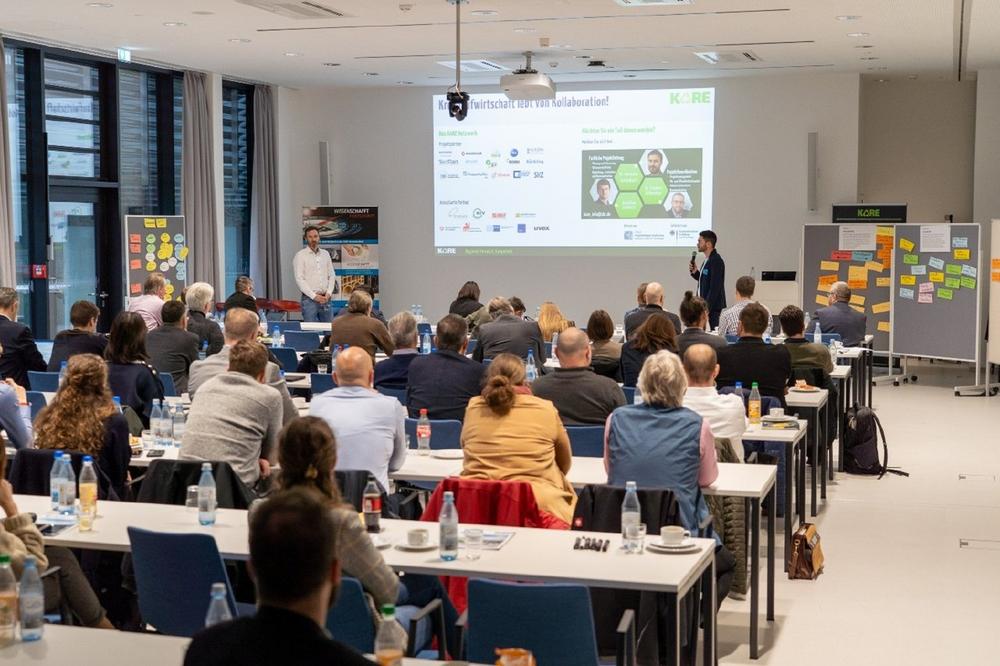A trend analysis conducted as part of the project identified four key areas for action: regulation, technology, work design and employee structure. Innovations in automation and digitalisation that directly affect the production of recycled materials are considered to be the most important technological drivers.
Regulatory hurdles and limited use of recycled materials
Many companies are struggling to implement the multitude of new legal requirements – such as the upcoming EU Directive on Corporate Sustainability Reporting (CSRD) or the EU Regulation on the reduction of pollution from microplastics from plastic granules – in a timely manner. At the same time, the use of recycled materials is often limited by customer reservations, higher costs, quality concerns or legal restrictions, for example in the medical sector. In other industries, such as the automotive industry, however, regulatory incentives are increasingly emerging, which are already being actively exploited by companies in the consortium.
Industry shows clear willingness to transform
A recent survey shows that over 80% of the companies surveyed have already embedded sustainability in their corporate strategy and are actively engaged in the circular economy. However, small and medium-sized enterprises in particular are struggling with complex regulatory requirements, high quality standards for the use of recycled materials and the increasing shortage of skilled workers.
‘The circular economy, digitalisation and resource efficiency are no longer topics for the future, but prerequisites for competitiveness – and necessary to meet environmental and climate protection goals,’ explains Jonathan Lambers, group leader for ‘Transformation of the Plastics Industry’ at SKZ – Das Kunststoff-Zentrum and project manager of KARE. ‘The will to transform is clearly evident, but companies face considerable structural hurdles,’ says Lambers.
Skilled labour shortage hinders transformation
A particularly pressing issue is the shortage of skilled workers. According to an analysis by TecPart – Verband Technische Kunststoff-Produkte e.V. (Association of Technical Plastic Products), 88 per cent of companies stated in 2024 that they were having problems recruiting staff. Almost half of employees were already over 45 years old in 2023 – there is a lack of young talent. KARE is therefore investigating ergonomic approaches to make the industry more attractive to skilled workers. Digital assistance systems that relieve employees, simplify decision-making processes and promote collaboration between multilingual teams are considered key to alleviating staff shortages while improving working conditions.
Webinar series ‘KARE Talks’ provides information on current developments
The free live stream series ‘KARE Talks’ regularly highlights current topics related to the transformation of the plastics industry. Experts provide a compact overview of relevant regulatory, technological and ergonomic developments. Registration is possible at any time at.
What happens next?
Powerful teams of experts from research and industry are currently developing concrete solutions in selected fields of action in the circular economy – and putting them directly into practice in participating companies. Topics include ‘design for sustainability’, ‘sustainability monitoring and reporting’, ‘recyclate procurement’, ‘use of recyclates in injection moulding and extrusion’, ‘waste prevention’ and ‘minimisation of granulate loss’.
About KARE
The Regional Competence Centre for Labour Research KARE (‘Building Competences for the Circular Economy of Plastics’) was launched on 1 October 2023. The aim is to make KARE sustainable after the five-year funding phase. To support companies in the implementation process, concrete solutions are currently being tested in six flagship projects – from design strategies for greater sustainability and digital monitoring systems to internal recycling concepts and the targeted use of recycled materials.
The findings will later be incorporated into transformation concepts and training programmes that will be available to companies, universities and technical colleges alike. In addition, they will be prepared for supra-regional knowledge transfer in business, society and politics. KARE is funded by the Federal Ministry of Research, Technology and Space (BMFTR) under funding code 02L22C200 until 30 September 2028. The project is managed by the Project Management Agency Karlsruhe (PTKA). KARE brings together five research institutes, ten application companies, one association and nine associated partners (companies, social and network partners). The central coordination of the network is carried out by the SKZ Plastics Centre.
The SKZ is a climate protection company and a member of the Zuse Association. This is an association of independent, industry-related research institutions that pursue the goal of improving the performance and competitiveness of industry, especially SMEs, through innovation and networking.
SKZ – Das Kunststoff-Zentrum
Friedrich-Bergius-Ring 22
97076 Würzburg
Telefon: +49 931 4104-0
https://www.skz.de
Group Manager | Transformation of the plastics industry
Telefon: +49 (931) 4104-427
E-Mail: j.lambers@skz.de
![]()
